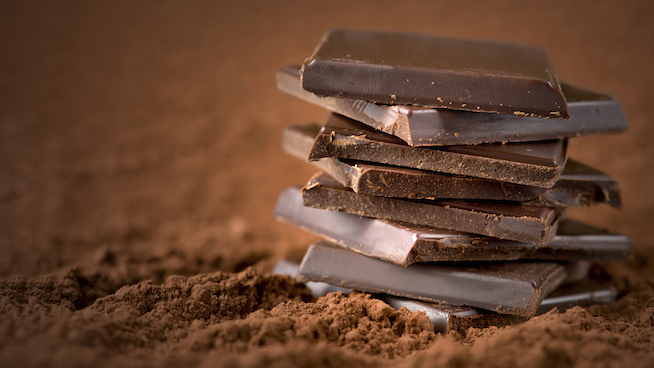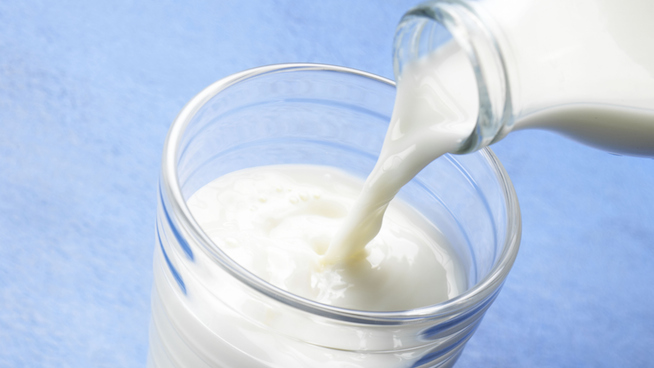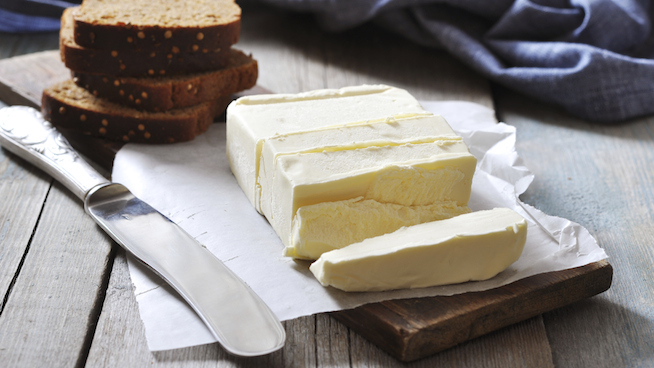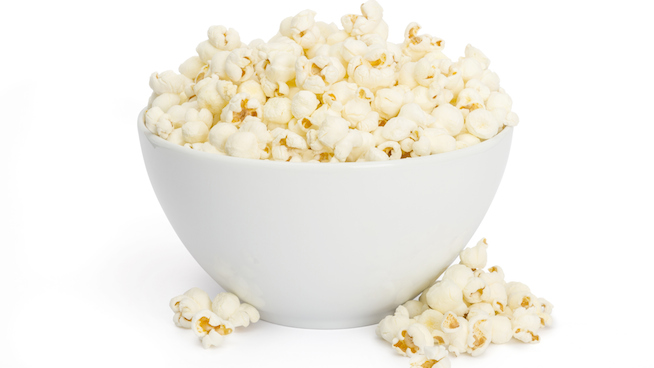5 Healthy Foods That Got a Bad Rap
People used to think that the world was flat, the sun orbited around the Earth and Pluto was a planet. Now we know better. Nutrition is no different. As research evolves, we learn more about how certain foods affect our bodies. Many foods we used to hold in high regard have been proven to be worse than we thought.
And those supposedly unhealthy foods that your mom always told you stay away from? Well, a few of them have been rehabilitated. New health benefits have been discovered, and doctors’ opinions about some once-maligned foods have changed dramatically. Here are 5 healthy foods that historically got a bad rap.
Chocolate
Yep, it’s official. Chocolate has a ton of health benefits. Cocoa beans, which are used to make chocolate, are high in flavonoids, an antioxidant that helps the body fight off cell damage. Flavanol, the main type of flavonoid found in chocolate, can lower blood pressure, improve blood flow to the brain and heart and reduce the risk of blood clots. It can even improve athletic performance!
But you can’t chow down on Snickers bars all day long and expect to reap health benefits. The more that chocolate is processed (through fermentation, roasting, alkalizing, etc.), the more flavonols are lost. Many commercial chocolates are highly processed, so picking a high-flavonol chocolate can be tricky. Dark chocolate has more flavonols than milk chocolate (and less fat and sugar), so that’s a good place to start. Picking a product with cocoa powder that hasn’t undergone Dutch processing is another way to ensure optimal flavanol content.
Whole Milk
Whole milk has a higher fat content than 2%, 1% and skim milk. That’s why for a long time, people assumed that whole milk wasn’t a smart nutritional option. But the more we learn about whole milk, the more there is to like. One of the main issues with skim and low-fat milk is that it simply doesn’t fill you up, so you’re more likely to consume additional calories. This problem doesn’t exist with whole milk, which leaves people more satisfied and full.
Milk fat also has a number of recently discovered health benefits, such as decreasing infertility in women, lowering the possibility of colorectal cancer in men and improving the body’s ability to build muscle. Organic whole milk has more omega-3 fatty acids than other milk varieties (50 percent more than 2% milk and 66 percent more than 1% milk.) Omega-3 fatty acids can’t be produced by our bodies, so they must come from outside food sources. They help to reduce inflammation, blood-clotting, cholesterol and blood pressure, in addition to confering a handful of other benefits.
Butter
Butter has long been thought to be synonymous with poor health. That’s why products like “I Cant Believe It’s Not Butter” and margarine became so popular. But it’s turning out that butter might not be the nutritional nightmare we always thought. Butter has a lot of fat, specifically saturated fat, long a villain in the nutritional world. But a recent study proved that there is no direct link between the consumption of saturated fat and an increased risk of heart disease.
Butter substitutes are often highly processed and contain trans fats, which are worse for the heart than the fats in real butter. Butter is a natural, simple food that people have been eating for thousands of years. You shouldn’t start slathering butter on all your food, but choosing an organic, unsalted butter instead of a processed butter substitute is a smart move. Heck, you might even want to throw some in your coffee.
Egg Yolks
The golden center of the egg has been disparaged for far too long. Egg yolks have traditionally been criticized for their high cholesterol content, but they’re rich in heart-healthy omega-3 fats. It’s been shown that egg yolks actually play very little role in raising cholesterol. And they’re packed with nutrients such as riboflavin, vitamin B-12, vitamin D, choline and selenium. Choline is important for fetal brain development, making egg yolks a good choice for pregnant women, and selenium plays a role in protecting against some forms of cancer.
Another big reason you shouldn’t ditch egg yolk? Protein. If you throw out the yolk, you’re losing nearly 3 grams of protein—about 40 percent of the egg’s total protein content. Next time you cook eggs, don’t be afraid to leave the yolk in. Your body—and your taste buds—will thank you.
Popcorn
Although popcorn is usually thought of as a movie night treat, recent research suggests it deserves a better reputation and a bigger role in our diets. Popcorn has been shown to have more antioxidants than both fruits and vegetables. It’s very high in polyphenols, a class of antioxidants that helps prevent cancer, cardiovascular disease and osteoporosis. Popcorn has about 300mg of polyphenols per serving, compared to fruit which had an average of 160mg per serving.
Professor Joe Vinson, who led a study on popcorn at the University of Scranton, told Science Daily that “Popcorn may be the perfect snack food. It’s the only snack that is 100 percent unprocessed whole grain.” Air-popping popcorn is far and away the healthiest way to prepare it. Microwave popcorn and popcorn popped in oil have more fat and calories than the air-popped variety. In addition, if you cover your popcorn in caramel, cheese, salt, etc., its nutritional value can plummet. But plain air-popped popcorn is a smart, nutritional snack.
RELATED:
RECOMMENDED FOR YOU
MOST POPULAR
5 Healthy Foods That Got a Bad Rap
People used to think that the world was flat, the sun orbited around the Earth and Pluto was a planet. Now we know better. Nutrition is no different. As research evolves, we learn more about how certain foods affect our bodies. Many foods we used to hold in high regard have been proven to be worse than we thought.
And those supposedly unhealthy foods that your mom always told you stay away from? Well, a few of them have been rehabilitated. New health benefits have been discovered, and doctors’ opinions about some once-maligned foods have changed dramatically. Here are 5 healthy foods that historically got a bad rap.
Chocolate
Yep, it’s official. Chocolate has a ton of health benefits. Cocoa beans, which are used to make chocolate, are high in flavonoids, an antioxidant that helps the body fight off cell damage. Flavanol, the main type of flavonoid found in chocolate, can lower blood pressure, improve blood flow to the brain and heart and reduce the risk of blood clots. It can even improve athletic performance!
But you can’t chow down on Snickers bars all day long and expect to reap health benefits. The more that chocolate is processed (through fermentation, roasting, alkalizing, etc.), the more flavonols are lost. Many commercial chocolates are highly processed, so picking a high-flavonol chocolate can be tricky. Dark chocolate has more flavonols than milk chocolate (and less fat and sugar), so that’s a good place to start. Picking a product with cocoa powder that hasn’t undergone Dutch processing is another way to ensure optimal flavanol content.
Whole Milk
Whole milk has a higher fat content than 2%, 1% and skim milk. That’s why for a long time, people assumed that whole milk wasn’t a smart nutritional option. But the more we learn about whole milk, the more there is to like. One of the main issues with skim and low-fat milk is that it simply doesn’t fill you up, so you’re more likely to consume additional calories. This problem doesn’t exist with whole milk, which leaves people more satisfied and full.
Milk fat also has a number of recently discovered health benefits, such as decreasing infertility in women, lowering the possibility of colorectal cancer in men and improving the body’s ability to build muscle. Organic whole milk has more omega-3 fatty acids than other milk varieties (50 percent more than 2% milk and 66 percent more than 1% milk.) Omega-3 fatty acids can’t be produced by our bodies, so they must come from outside food sources. They help to reduce inflammation, blood-clotting, cholesterol and blood pressure, in addition to confering a handful of other benefits.
Butter
Butter has long been thought to be synonymous with poor health. That’s why products like “I Cant Believe It’s Not Butter” and margarine became so popular. But it’s turning out that butter might not be the nutritional nightmare we always thought. Butter has a lot of fat, specifically saturated fat, long a villain in the nutritional world. But a recent study proved that there is no direct link between the consumption of saturated fat and an increased risk of heart disease.
Butter substitutes are often highly processed and contain trans fats, which are worse for the heart than the fats in real butter. Butter is a natural, simple food that people have been eating for thousands of years. You shouldn’t start slathering butter on all your food, but choosing an organic, unsalted butter instead of a processed butter substitute is a smart move. Heck, you might even want to throw some in your coffee.
Egg Yolks
The golden center of the egg has been disparaged for far too long. Egg yolks have traditionally been criticized for their high cholesterol content, but they’re rich in heart-healthy omega-3 fats. It’s been shown that egg yolks actually play very little role in raising cholesterol. And they’re packed with nutrients such as riboflavin, vitamin B-12, vitamin D, choline and selenium. Choline is important for fetal brain development, making egg yolks a good choice for pregnant women, and selenium plays a role in protecting against some forms of cancer.
Another big reason you shouldn’t ditch egg yolk? Protein. If you throw out the yolk, you’re losing nearly 3 grams of protein—about 40 percent of the egg’s total protein content. Next time you cook eggs, don’t be afraid to leave the yolk in. Your body—and your taste buds—will thank you.
Popcorn
Although popcorn is usually thought of as a movie night treat, recent research suggests it deserves a better reputation and a bigger role in our diets. Popcorn has been shown to have more antioxidants than both fruits and vegetables. It’s very high in polyphenols, a class of antioxidants that helps prevent cancer, cardiovascular disease and osteoporosis. Popcorn has about 300mg of polyphenols per serving, compared to fruit which had an average of 160mg per serving.
Professor Joe Vinson, who led a study on popcorn at the University of Scranton, told Science Daily that “Popcorn may be the perfect snack food. It’s the only snack that is 100 percent unprocessed whole grain.” Air-popping popcorn is far and away the healthiest way to prepare it. Microwave popcorn and popcorn popped in oil have more fat and calories than the air-popped variety. In addition, if you cover your popcorn in caramel, cheese, salt, etc., its nutritional value can plummet. But plain air-popped popcorn is a smart, nutritional snack.
RELATED:
















